
Hi everyone!
Fats have been given a bad label, and for this we can thank the sugar industry, which funded a number of researches which shifted the blame to fats, for many of the afflictions including heart related diseases and obesity. At the same time our food became processed (or even ultra processed), so it can enter our bloodstream almost instantaneously and slam our mitochondria to the point where they aren't capable of producing energy.
Did you know that Kellogs was the first one ever to advertise pre-digestive food (their cornflakes which are over 80% carbs!) as a healthy benefit?
With fats to take the blame, nowadays there's so many low-fat choices, where the fats are mechanically removed from foods, which naturally come with high amounts of fat. When reaching for these types of products, what we often don't realize is that these foods are not only even more processed due to mechanical fats removal but also usually packed with sugar. And glucose from sugar is the first to enter our mitochondria. As mentioned earlier, that's an easy way to create a traffic jam. On top of that, sugar, when consumed in excessive amounts gets converted in our bodies into ... wait for it ... fat, which is by the way the most efficient mean to store the energy (each gram of fats has 9 calories, whereas one gram of protein and carbs contains 4 calories).
The importance of fats
Fats are not only an efficient way to store the energy, but also are the carrier for fat-soluble vitamins like A, D, E and K. Fats protect your organs and support cell growth. Moreover some fats, short-chain fatty acids to be more specific, nourish our gut and our brain.
There are of course bad types of fats eg. saturated animal fats, because they're feeding the wrong gut bacteria. If you have huge amounts of this bacteria in your gut, your body goes on to producing so called LPSes (lipopolysaccharides), which hop on the fat molecules and ride along our lymphatic systems, causing inflammation. Another bad type of fat is trans fat (which is made by turning liquid oils into solids), which dramatically raise LDL levels (bad cholesterol), without corresponding raise in the good cholesterol (HDL).
Types of fat
- saturated fats
- unsaturated fats
- trans fats
In this post I'm going to focus on saturated fats and unsaturated fats. Below I'm presenting a list of healthy fat choices, which are definitely worth incorporating into your diet.
Saturated fats
Also called solid fats (they stay solid at room temperature) have each carbon molecule linked with hydrogen. When heated, the molecule remains stable, and that's why they're the best choice for cooking and frying. Coconut oil and ghee are the two I'm extensively using in my kitchen.
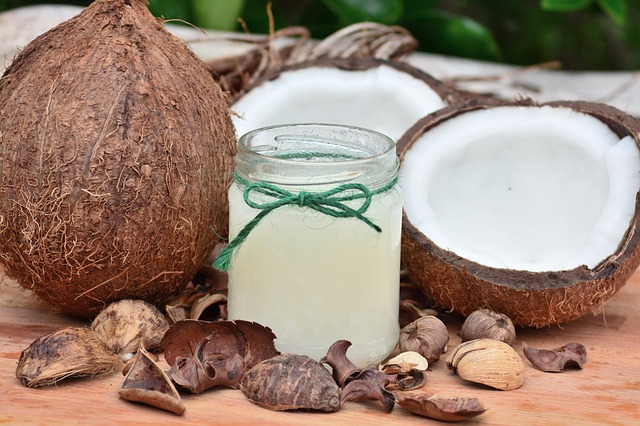
Coconut oil
- contains medium-chain fatty acids which regulate glucose and lipid metabolism and they're easily absorbed in the bloodstream*;
- has anti-inflammatory, anti-fungal and anti-microbial properties;
- might serve as a quick source of energy (eg. when added to coffee);
- contains vitamin E;
MCT oil
- probably the only product that is this high in medium chain triglycerides*;
- very easy to digest; mct's go straight to your liver;
- great source of energy; when ingested, your liver instantly produces ketones;
It's important to know, that even though MCT oil is mostly saturated fat, it has a low smoke point and thus it's not suitable for frying!
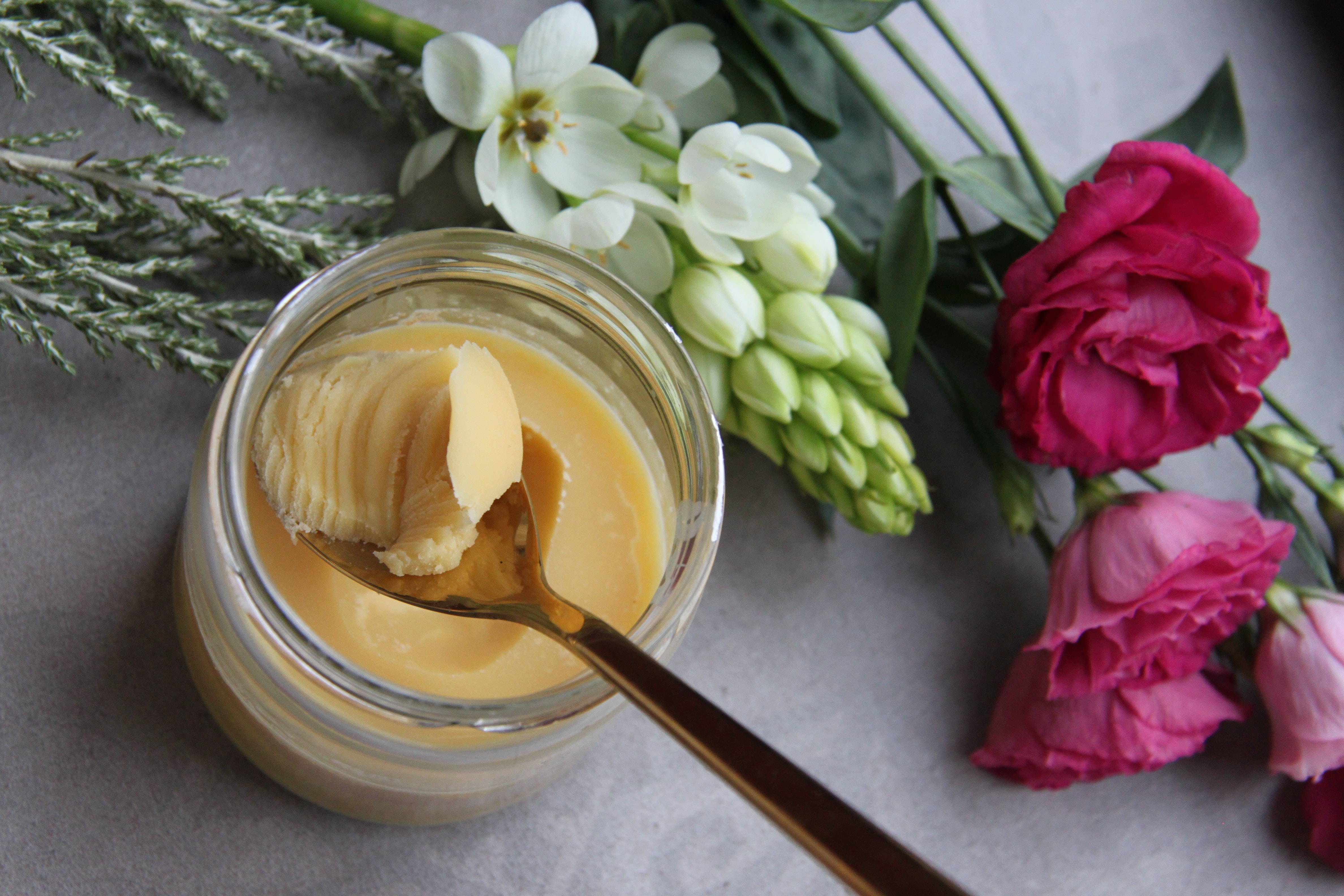
Ghee (or clarified butter)
- rich in vitamins A, D, E and K;
- lactose free;
- similarly to coconut oil, can serve as a quick source of energy;
- supports a healthy digestive tract;
*medium-chain fatty acids are unique types of fat. Normally fats are transported along our gut wall with the use of chylomicrons. Mcts transverse the gut wall without chylomicrons, and thus, as mentioned before, they go directly into your liver.
Unsaturated fats
There's two types of unsaturated fats: monounsaturated fats and polyunsaturated fats. What lots of people don't realize is that they're not suitable for frying, as in higher temperatures they become oxidized (or rancid), which results in an unusual odor and taste.
Monounsaturated fats
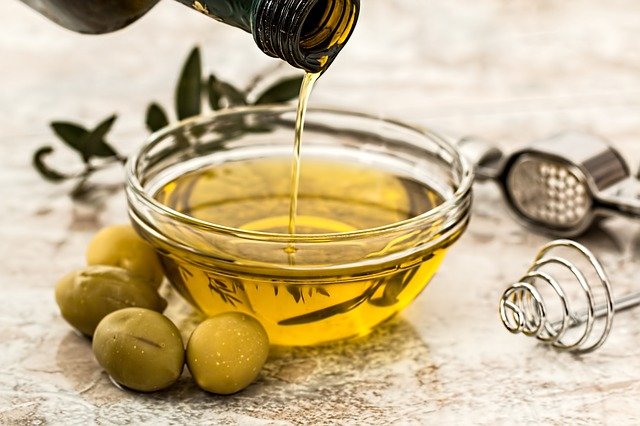
Olive oil
- activates sirtuin enzyme, which is believed (so far there were only experiments on mice) to improve longevity;
- reduces the likelihood of a stroke and heart disease;
- has anti-inflammatory, antimicrobial and antibacterial properties;
- encourages fat burning;
- contains modest amounts of vitamins E and K;
- high in omega-3 and omega-6 fatty acids (with a descent omega-6 to omega-3 ratio);
Because the molecules in monounsaturated fats can break down easily when exposed to heat and sunlight, it's important to store the olive oil in the fridge in a dark glass bottle.
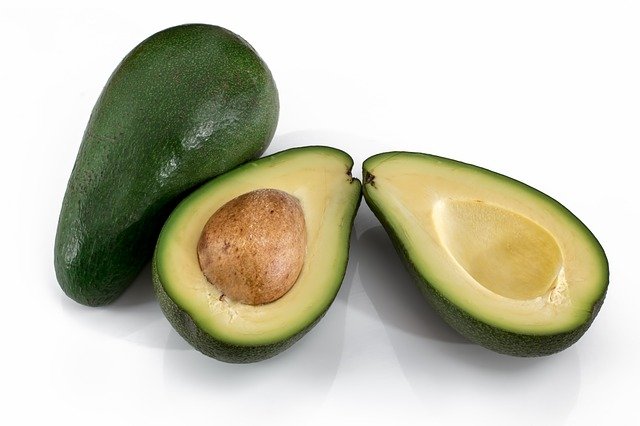
Avocado
- probably the only fruit that is high in healthy fats and contains nearly zero sugars;
- rich in C, E, K and B6 vitamins;
- has anti-inflammatory properties;
- high in omega fatty acids;
- great source of energy;
Polyunsaturated fats
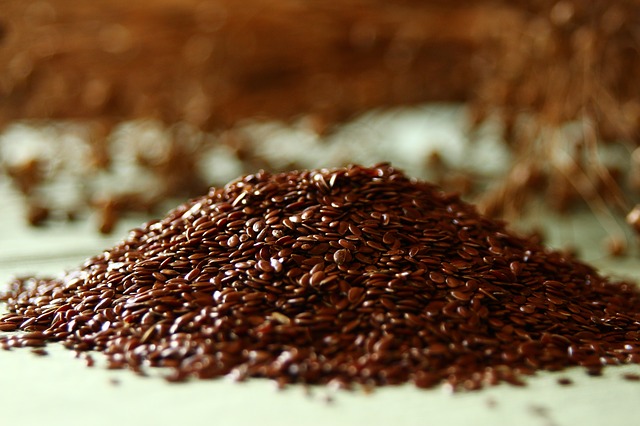
Flax seeds
- has descent amount of soluble fibers which our gut bacteria uses to produce postbiotics**;
- high in omega-3 fatty acids;
- might lower blood pressure;
- are a good source of protein;
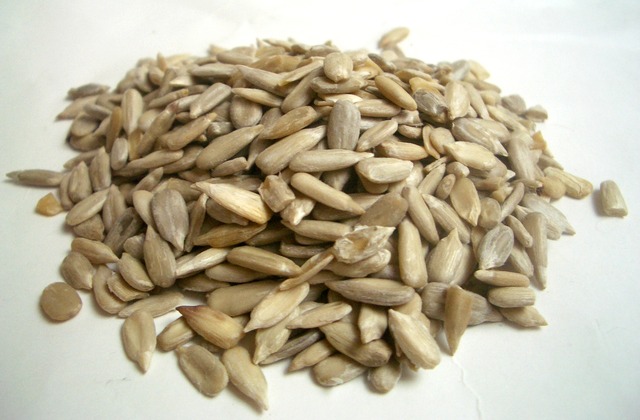
Sunflower seeds
similarly to flax seeds, contain good amount of soluble fiber;reduce inflammation;lowers rate of cardiovascular disease;
Edit. I did some additional research on sunflower seeds, and even though they have all that health benefits mentioned above, they raise some serious health concerns related to the gut wall and nutrient absorption. You may want to stay away from sunflower seeds, and substitute them with sesame or hemp seeds.
**postbiotics are produced by bacteria during the fermentation of soluble fiber. During that process, short-chain fatty acids (which, ass mentioned before, nourish the gut wall and the brain) and gases (like hydrogen sulfate, carbon dioxide or methane) are created. One thing worth noticing is that, we used to think these gases were just farts and they don't do anything. Now we know that the microbiome talks to mitochondria through those gases (it's called the trans-kingdom language)! For example, if the right amount of hydrogen sulfate is produced, the walls of the blood vessels are protected from accumulating the LDL (bad cholesterol) plague.
Summary
Fats are an inevitable part of a healthy lifestyle. Some are good, and some are not so good. One thing is for sure - they're not just evil actors, even though they're presented to us as such. By educating ourselves and paying attention to what types of foods we ingest, we can live healthy, long lives and make choices that are based on the conscious understanding.
Have a good one!
Great post, very informative. I didn't know about the pre-digested food--sounds horrible. I've always had huge problems storing fat (ectomorph here, currently sitting on about 6% body fat). I din't know olive oil encourages fat burning either (is it a problem for me?).
You never mentioned peanut. Does that have fat or it's more of a protein thing?
No, it isn't :) Olive oil is actually really healthy! As mentioned in the post, it activates sertuin enzyne (which improves longevity) and evidence shows that omega-3 fatty acids which are found in olive oil improve heart health.
There's one Spanish study, where they followed a group of 65-year olds for 4 years, who consumed a liter of olive oil a week (that's like ~ 140ml a day) along with mediterranean diet. The other group was on low-fat diet. The women in the first group had a 68% lower incidence of female-related health concerns.
They're high in both protein and fat, with a descent amount of fiber. I actually went on to do some research on peanuts this morning. The conclusion is that, you'd want to stay away from peanuts. Studies suggest that the lectin found in peanuts might negatively impact your gut's health. Another compound found in peanuts, called phytic acid can prevent absorption of nutrients your body needs the most. Sadly, sunflower seeds raise similar health concerns, so I'm going to do an evaluation on my diet and on this post.
Fun fact. Did you know peanuts aren't actually nuts, but rather legumes? :)